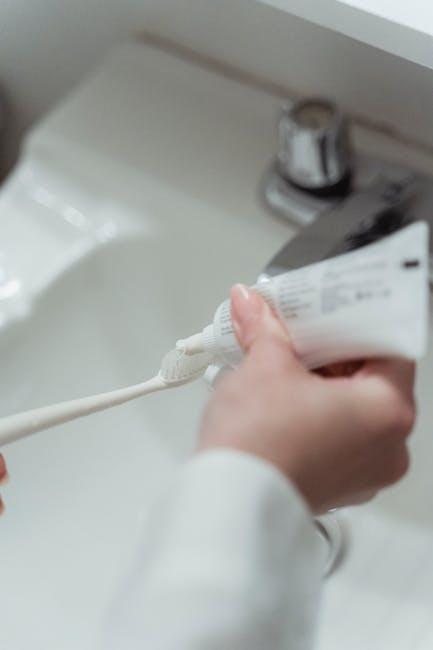
Temple Professor Explains the Importance of Fluoride for Dental Health
Fluoride has been hailed as one of the greatest public health advances of the 20th century, yet many people still have questions about its role in dental health. At Temple University, a leading professor in dentistry breaks down why fluoride is essential for maintaining strong, cavity-free teeth. In this comprehensive article, we’ll explore the science behind fluoride, its benefits, practical tips for optimal use, and real-world impacts on oral hygiene.
What is Fluoride and Why Does It Matter for Dental Health?
Fluoride is a naturally occurring mineral found in water, soil, and various foods. It’s well-known for its ability to prevent tooth decay and strengthen enamel. When incorporated correctly into dental care routines, fluoride can dramatically reduce the rate of cavities and improve overall oral health.
The Science Behind Fluoride’s Effectiveness
According to experts at Temple University, including dental health professor Dr. Emily Harris, fluoride works by:
- Remineralizing tooth enamel: Fluoride promotes the repair of tiny enamel cracks and weak spots caused by acid attacks from bacteria.
- Inhibiting harmful bacteria: Fluoride helps reduce the ability of decay-causing bacteria to produce acids that harm the teeth.
- Enhancing resistance: Teeth exposed to fluoride become more resistant to future decay and acid erosion.
Benefits of Fluoride for Dental Health
Temple University’s research underscores multiple key benefits of fluoride usage:
| Benefit | Description |
|---|---|
| Cavity Prevention | Significantly reduces tooth decay in children and adults. |
| Enamel Strengthening | Reinforces enamel, helping teeth resist acid breakdown. |
| Cost-Effective | Fluoride treatments and water fluoridation lower dental care expenses nationally. |
| Wide Accessibility | Available via toothpaste, mouth rinses, and community water supplies. |
Practical Tips for Incorporating Fluoride in Daily Oral Care
To maximize fluoride’s dental benefits, Professor Harris from Temple University advises the following strategies:
- Use fluoridated toothpaste: Choose toothpaste containing fluoride, brushing twice daily for two minutes each time.
- Consider mouth rinses: Use fluoride mouth rinses, especially if prone to cavities or recommended by your dentist.
- Know your water source: Check if your community water supply is fluoridated; if not, discuss supplementation options with your dental professional.
- Professional fluoride treatments: Regular dental visits may include fluoride varnish or gel applications for extra protection.
Case Study: Fluoride’s Impact in Philadelphia Communities
Temple University’s public health dental department conducted a study across Philadelphia neighborhoods to evaluate fluoride’s role in cavity prevention. The findings showed:
- Communities with fluoridated water systems experienced a 30% lower incidence of childhood cavities versus non-fluoridated areas.
- School-based fluoride varnish programs reduced decay rates by nearly 25% in participating students.
These results validate fluoride’s role as an effective public health measure, confirming decades of global research.
Common Myths & Facts about Fluoride
| Myth | Fact |
|---|---|
| Fluoride is harmful and toxic. | At recommended levels, fluoride is safe and beneficial for dental health. Toxicity is linked to extreme overuse. |
| Only children need fluoride. | Fluoride benefits all ages by preventing decay and strengthening enamel. |
| Fluoride causes fluorosis in everyone. | Fluorosis occurs only with excessive fluoride intake during childhood tooth development. |
| Natural sources alone provide enough fluoride. | Supplementation through toothpaste and water fluoridation enhances natural protection. |
Firsthand Experience: A Dental Student from Temple University
Jessica Nguyen, a dental student at Temple University, shares her personal observations about fluoride’s impact:
“During my clinical practice, I’ve seen firsthand how fluoride varnish applications transform patients’ oral health, especially children with high cavity risk. Fluoride isn’t just for prevention — it’s a powerful tool that repairs and strengthens teeth. I encourage everyone to embrace fluoride as part of their daily routine.”
Conclusion
Fluoride remains an indispensable element in the fight against tooth decay and for maintaining lifelong dental health. The expert insights from Temple University’s dental faculty reinforce the importance of fluoride in daily oral care, community water supplies, and professional treatments. By understanding fluoride’s benefits and incorporating it properly, individuals can protect their teeth, reduce dental costs, and enjoy a healthier smile for years to come.
Remember: Regular brushing with fluoridated toothpaste, professional dental check-ups, and community water fluoridation together form the best defense against tooth decay.


